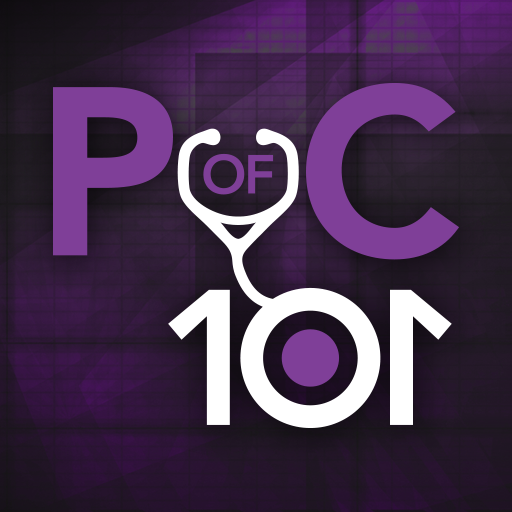Faculty
Barry J. Make, MD
Professor of Medicine
Division of Pulmonary, Critical Care, and Sleep Medicine
University of Colorado School of Medicine
Co-Director, COPD Program
Director, Pulmonary Rehabilitation and Respiratory Care
Department of Medicine
National Jewish Health
Denver, Colorado
Richard H. Stanford, PharmD, MS
Vice President
Aesara
Adjunct Assistant Professor
University of North Carolina Eshelman School of Pharmacy
Chapel Hill, North Carolina
Barbara P. Yawn, MD, MSc, FAAFP
Researcher
Adjunct Professor
Department of Family and Community Health
University of Minnesota
Minneapolis, Minnesota
Target Audience
The educational design of this activity addresses the needs of managed care pharmacists, medical directors, and other healthcare professionals who help guide the treatment of patients with chronic obstructive pulmonary disease (COPD).
Program Description
The biopsychosocial and economic impact of COPD is substantial. Preventing exacerbations by optimizing the delivery of COPD care across the healthcare continuum is imperative to achieving the ultimate goal of improved patient outcomes. This enduring program assembles a multidisciplinary faculty panel consisting of a pulmonologist, primary care physician, and a managed care pharmacist to provide expert insights and discuss best practices in the management of COPD—including exacerbation risk prevention, available and emerging therapeutic options—and how these factors may be used to shape managed care pharmacy decisions and future managed care paradigms. Pertinent patient case studies will also be utilized to provide examples of how recommended approaches to evidence and value-based care can be collaborative applied to healthcare systems.
Learning Objectives
Upon completion of this activity, the participant shoudl be better able to:
- Characterize the clinical, economic, and healthcare utilization budens of COPD exacerbations
- Discuss the latest evidence-based guidelines on COPD exacerbation prevention
- Describe the clinical profiles and potential cost offsets associated with newer maintenance treatment options for COPD
- Update benefit design strategies with new data and treatment modalities to optimize healthcare access and outcomes for patients with COPD
Physician Accredidation Statement
This activity has been planned and implemented in accordance with the accreditation requirements and policies of the Accreditation Council for Continuing Medical Education (ACCME) through the joint providership of Global Education Group (Global) and Integritas Communications. Global is accredited by the ACCME to provide continuing medical education for physicians.
Physician Credit Designation
Global designates this enduring activity for a maximum of 1.25 AMA PRA Category 1 CreditsTM. Physicians should claim only the credit commensurate with the extent of their participation in the activity.
Pharmacist Accreditation Statement

Global is accredited by the Accreditation Council for Pharmacy Education as a provider of continuing pharmacy education.
Credit Designation
Global designates this continuing education activity for 1.25 contact hours (0.125 CEUs) of the Accreditation Council for Pharmacy Credit (Universal Activity Number: 0530-9999-20-052-H01-P).
This is a knowledge-based activity.
Disclosure of Conflicts of Interest
Global requires instructors, planners, managers and other individuals and their spouses/life partners who are in a position to control the content of this activity to disclose any real or apparent conflict of interest they may have as related to the content of this activity. All identified conflicts of interest are throroughly vetted by Global for fair balance, scientific objectivity of studies mentioned in the materials or used as the basis for content, and appropriateness of patient care recommendations.
The faculty reported the following financial relationships or relationships to products or devices they or their spouses/life partners have with commercial interests related to the content of this CME activity:
Barry J. Make, MD: Consultant/Independent Contractor: AstraZeneca; Grant/Research Support: National Heart, Lung, and Blood Institute (NHLBI), AstraZeneca; Other/Royalty: DSMB: NIH, Circassia; Advisory Board: AstraZeneca, Boehringer Ingelheim, Phillips, Mylan, Novartis; CME: Integritas, Projects in Knowledge, Eastern Pulmonary Society, Wolters Kluwer Health
Richard H. Stanford, PharmD, MS: Other/Royalty: Works as a consultant with a consulting company that has consulting agreements with Allergan plc, GlaxoSmithKline plc, and Innoviva, Inc.
Barbara P. Yawn, MD, MSc, FAAFP: Consultant/Independent Contractor: AstraZeneca plc, Boehringer Ingelheim International GmbH, GlaxoSmithKline plc
The following planners and managers reported no financial relationships or relationships to products or devices they or their spouses/life partners have with commercial interests related to the content of this CME activity:
Lindsay Borvansky, Andrea Funk, Liddy Knight, Ashley Cann, Celeste Collazo, MD, Rose O'Connor, PhD, CHCP, Jim Kappler, PhD
Disclosure of Unlabeled Use
This educational activity may contain discussion of published and/or investigational uses of agents that are not indicated by the FDA. Global and Integritas Communications do not recommend the use of any agent outside of the labeled indications.
The opinions expressed in the educational activity are those of the faculty and do not necessarily represent the views of any organization associated with this activity. Please refer to the official prescribing information for each product for discussion of approved indications, contraindications, and warnings.
Disclaimer
Participants have an implied responsibility to use the newly acquired information to enhance patient outcomes and their own professional development. The information presented in this activity is not meant to serve as a guideline for patient management. Any procedures, medications, or other courses of diagnosis or treatment discussed in this activity should not be used by clinicians without evaluation of patient conditions and possible contraindications on dangers in use, review of any applicable manufacturer’s product information, and comparison with recommendations of other authorities.
Instructions to Receive Credit
In order to receive credit, participants must complete the following:
- Read the educational objectives, accreditation information, and faculty disclosures at the beginning of this activity
- Complete the Pre-Questionnaire
- Review the activity content
- Complete the Posttest and Evaluation
- Achieve a score of at least 100% on the Posttest and complete the Evaluation to receive credit
- Pharmacist learners must check the CPE Monitor for their credit within 60 days of the activity
Global Contact Information
For information about the accreditation of this program, please contact Global at 303-395-1782 or cme@globaleducationgroup.com.
Fee Information & Refund/Cancellation Policy
There is no fee for this educational activity.







